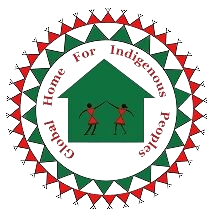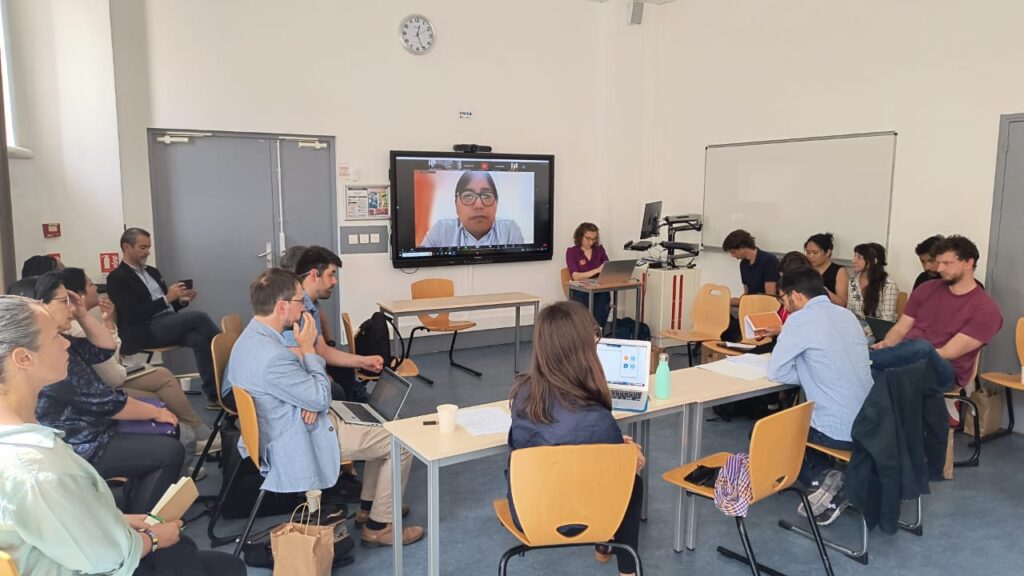Satement by Dr. Manual May Castillo on Item 9: Enhancing the participation of Indigenous Peoples in the United Nations
17th session of the Expert Mechanism on the Rights of Indigenous Peoples
08 – 12 July 2024 AT Palais des Nations, Room XIX. LOCATION: GENEVA, SWITZERLAND
Thank you Madam Chair,
We thank the EMRIP for organizing this panel.
We thank the first delegates who have struggled for many years to open spaces for participation within the League of Nations and the United Nations. We thank Elder Levi Deskaheh of the Haudenosaunee and the various delegations from 1977 at the NGO Conference in Geneva and onwards.
We honor the work of our Elders since the last century. We appreciate the efforts of the General Assembly and the OHCHR for the workshop on IP participation in November 2022. We note with great enthusiasm that there is increasing participation in EMRIP, especially from Indigenous youth. We warmly appreciate the work of the Voluntary Fund and the various fellowships in this regard.
In relation to the OHCHR report 53/44 on the workshop on enhancing the participation of PIs in the work of the Human Rights Council, we would like to note that:
– Despite the commendable efforts and invaluable advances in participation, we have observed some setbacks, particularly in the EMRIP and the Permanent Forum. While we recognize that the participation time has been reduced from 5 minutes to 3 minutes in the hope of allowing more space for all participants, it is not sufficient to allow the participation of all the indigenous delegates who have prepared written statements from which their communities expect a report back. In the past, several Indigenous delegates have come all the way to Geneva or New York but were not able to deliver their statements.
Therefore, we would like to reiterate the proposal contained in the OHCHR report 53/44 on enhancing IPs’ participation, in section B on modalities of participation and kindly request EMRIP to recommend the Human Rights Council to “include contributions from Indigenous Peoples’ representatives and institutions in their written statements” while participating in all venues of the Council concerning IPs’ issues even when they are not delivered orally.
We would also like to recommend to the Human Rights Council “to include spaces where indigenous experts can work from their/our native languages in the translation of Indigenous concepts that do not exist in the official UN languages. The translation of Indigenous concepts has proven to be a means to ensure meaningful participation of Indigenous Peoples in relation to the spiritual relationship with the Earth and it is in full alignment with the International Decade on Indigenous Languages.
Thank you very much.
17th session of the Expert Mechanism on the Rights of Indigenous Peoples
08 – 12 July 2024 AT Palais des Nations, Room XIX. LOCATION: GENEVA, SWITZERLAND
Thank you Madam Chair,
I thank EMRIP for organizing this panel.
I also thank the first delegates who fought since the last century to open spaces for participation within the League of Nations and the United Nations. I thank the Elder Levi Deskaheh of the Haudenosaunee and the various delegations from 1977 at the NGO Conference in Geneva and onwards.
Your Excellencies, Indigenous sisters and brothers, the international community is witnessing significant progress in the endorsement of the United Nations Declaration on the Rights of Indigenous Peoples (UNDRIP) within national frameworks. In its study on Study and advice on Constitutions, laws, legislation, policies, judicial decisions, and other mechanisms through which States have taken measures to achieve the ends of the Declaration, EMRIP has documented several advances in realizing the Declaration’s goals at the national level. However, it notes that the implementation gap remains.
Dear Experts, in relation to Articles 11 and 12 of the Declaration on Restitution and Repatriation of Cultural Elements and Human Remains I am pleased to congratulate the working group leading to the devolution of the Maso Kova to the Yaqui Peoples in Mexico.
I also would like to acknowledge the efforts of museums across Europe and the USA to increasingly engage in constructive debates concerning the repatriation and devolution of Indigenous relics held in their collections. Notably, the European Union’s human rights policies and instruments include respect for UNDRIP and the US has been supportive of the Declaration since 2010.
In light of these developments, I RECOMMEND as future work for the Expert Mechanism on the Rights of Indigenous Peoples (EMRIP), to undertake a comprehensive study in collaboration with Indigenous Peoples, museums, academia, and other cultural institutions and NGOs, on documenting and analyze cases and good practices in the restitution and repatriation of Cultural Elements and Human Remains.
Such an endeavor would not only draw attention to successful initiatives but also offer insights and guidance for future efforts in this crucial area.
Ki’iimak Óolal!, Thank you!
Global Home for Indigenous Peoples will be at the 17th Session of the EMRIP in Geneva (8-12 July, 2024)
We are thrilled to announce that Global Home for Indigenous Peoples will be attending the 17th Session of the Expert Mechanism on the Rights of Indigenous Peoples (EMRIP). Our organization will be represented by:
- Manual May Castillo (a Maya from Mexico),
- Brijlal Chaudhari (a member of the Tharu nation from Nepal), and
- Galgallo Guyo (a member of Waata Peoples from Marsabit, Kenya) waiting for a VISA
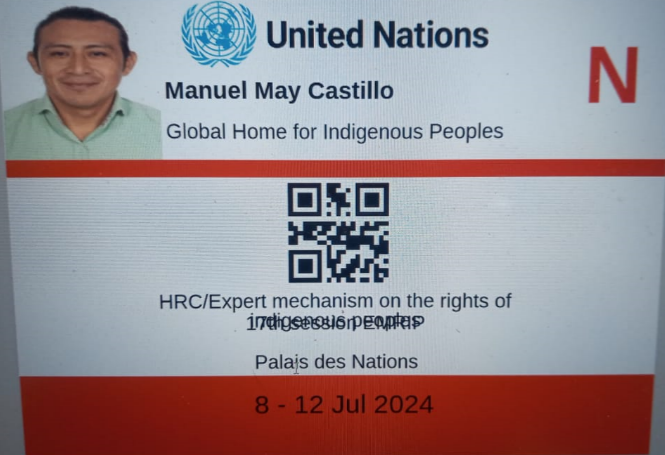
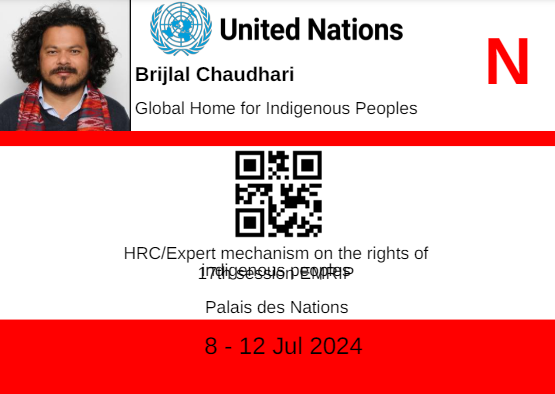
SIDE EVENT at UNPFII 2024
On April 19th, 2024, Global Home for Indigenous Peoples organized a side event, “Harmony High: Empowering Peaks, Nurturing Futures – Indigenous Youth Leading the Charge for Resilient Mountain Agriculture
Summary: As the global community gathers for the 23rd Session of the United Nations Permanent Forum on Indigenous Issues (UNPFII), the side event “Harmony High” emerges as a beacon of inspiration, celebrating the resilience of Indigenous youth. This event is dedicated to unraveling the rich tapestry meticulously woven by Indigenous youth, particularly focusing on their contributions to sustainable agriculture in mountainous regions.
Description: “Harmony High” is an ode to the relentless pursuit of disaster and climate resilience by Indigenous youth, particularly in the challenging terrain of mountainous regions. It symbolizes the passing of the torch, blending tradition and innovation harmoniously, all to sculpt a sustainable and resilient future. The side event aims to organize Indigenous youth for a resilient future by engaging and celebrating their contributions to food security and agriculture in mountainous regions. Mountains boast beautiful landscapes, rich biodiversity, and environments teeming with flora and fauna. They are also the cradle of traditional Indigenous knowledge and wisdom, including indigenous seeds and agricultural practices. This event seeks to highlight Indigenous youth leadership and vision for a sustainable and resilient world, rooted in traditional knowledge.
Watch the event online here https://webtv.un.org/en/asset/k1v/k1vmrp0n6a
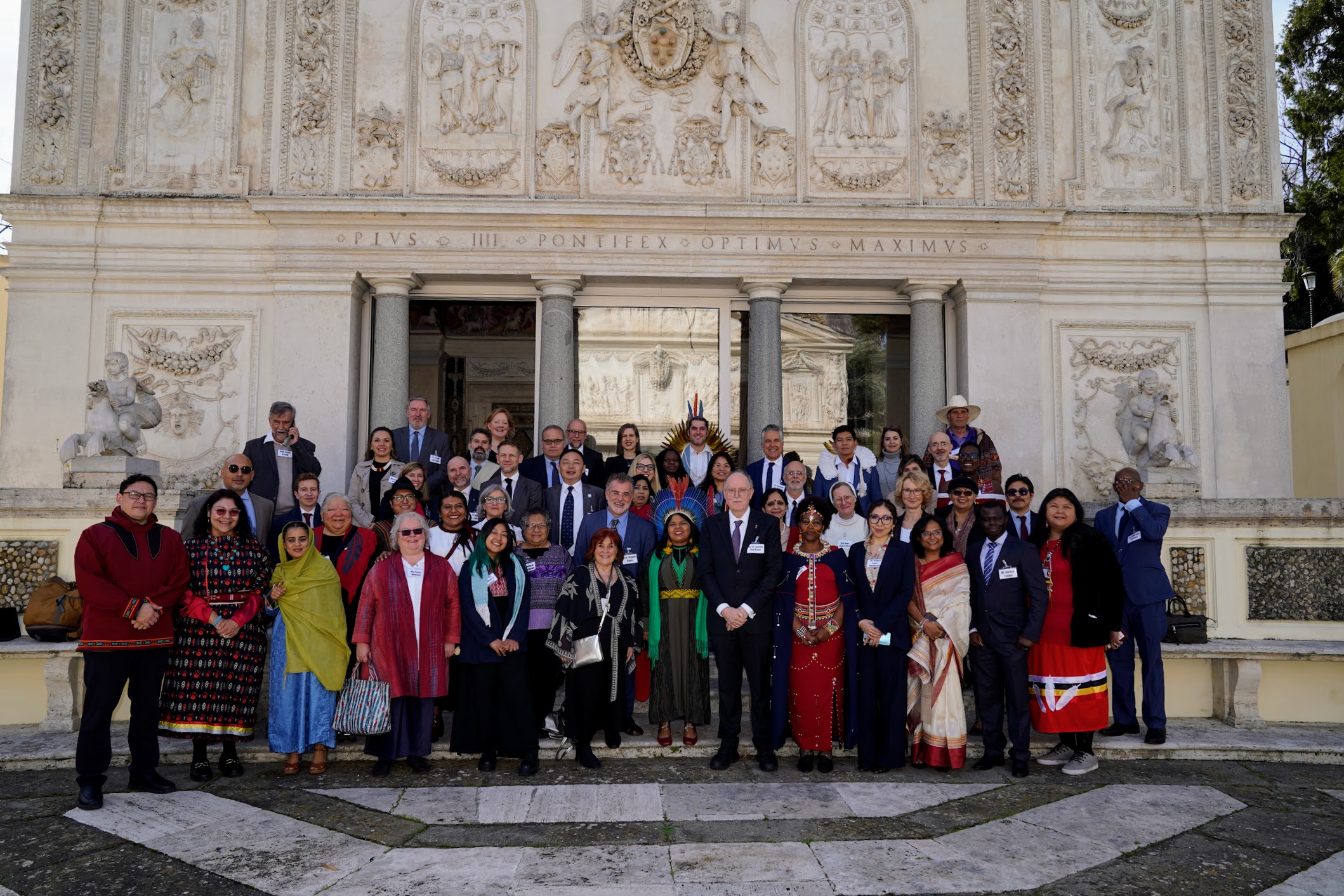
14-15 March 2024, Vatican City
Global Home for Indigenous Peoples was invited by the Pontifical Academies of Sciences and Social Sciences to a conference (14-15 March 2024) titled: Indigenous Peoples’ Knowledge and Sciences – Combining Traditional Knowledge and Science on Innovations for Resilience to Address Climate Change, biodiversity loss, food security, and health. More than 50 participants from Indigenous organizations, organizations working with Indigenous organizations, UN bodies, and universities attended the 2-day event. They also got an opportunity to meet the Pope.
Brijlal Chaudhari, President of Global Home attended the conference and presented his paper, “The Importance of Indigenous Peoples for Climate, biodiversity, food, and nutrition agendas, and building bridges between Indigenous Knowledge and Sciences.”
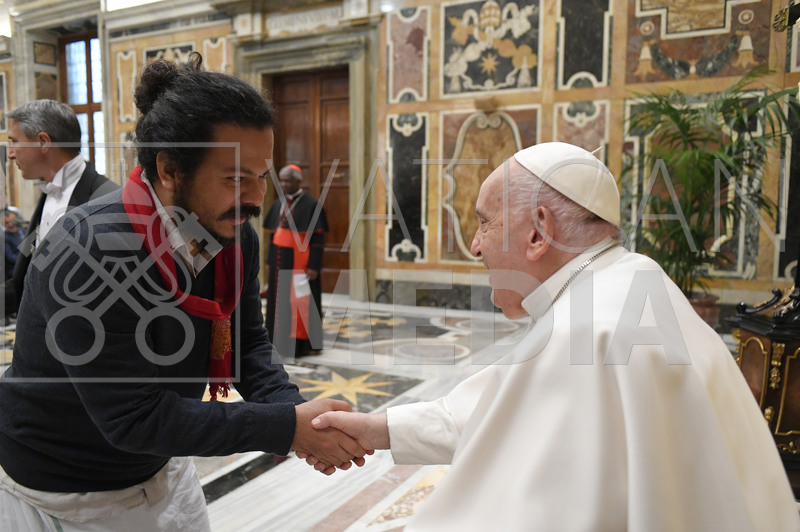
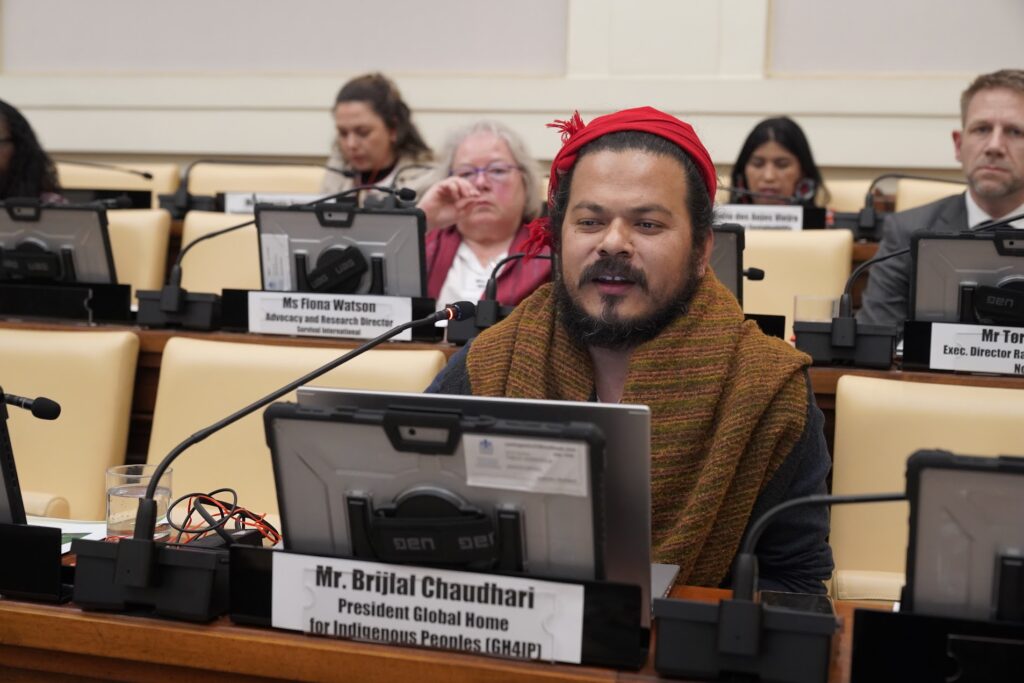
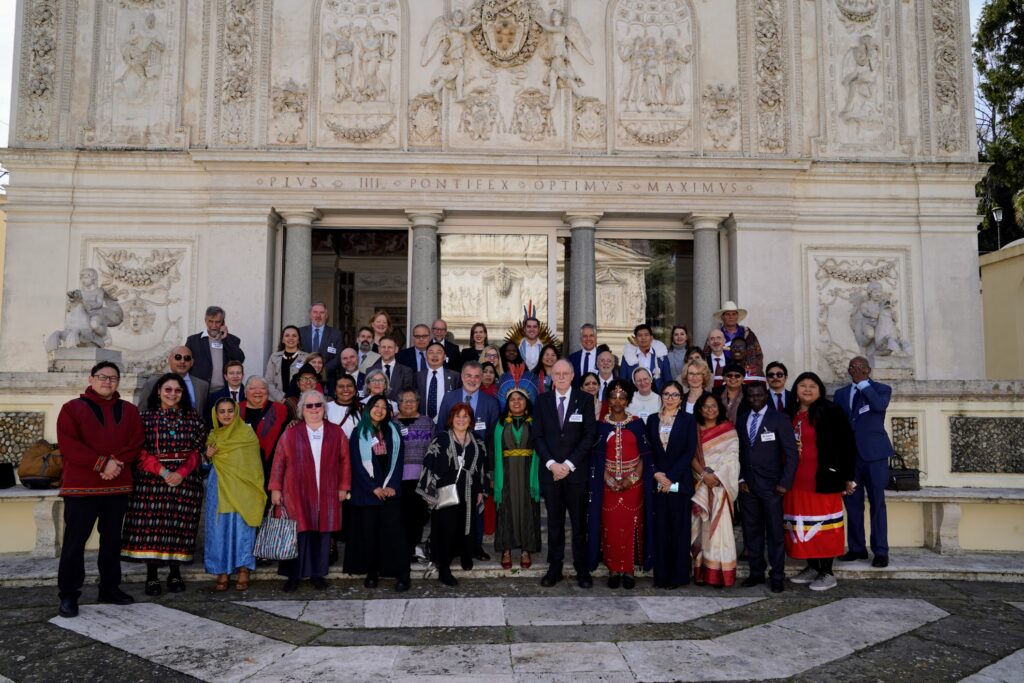
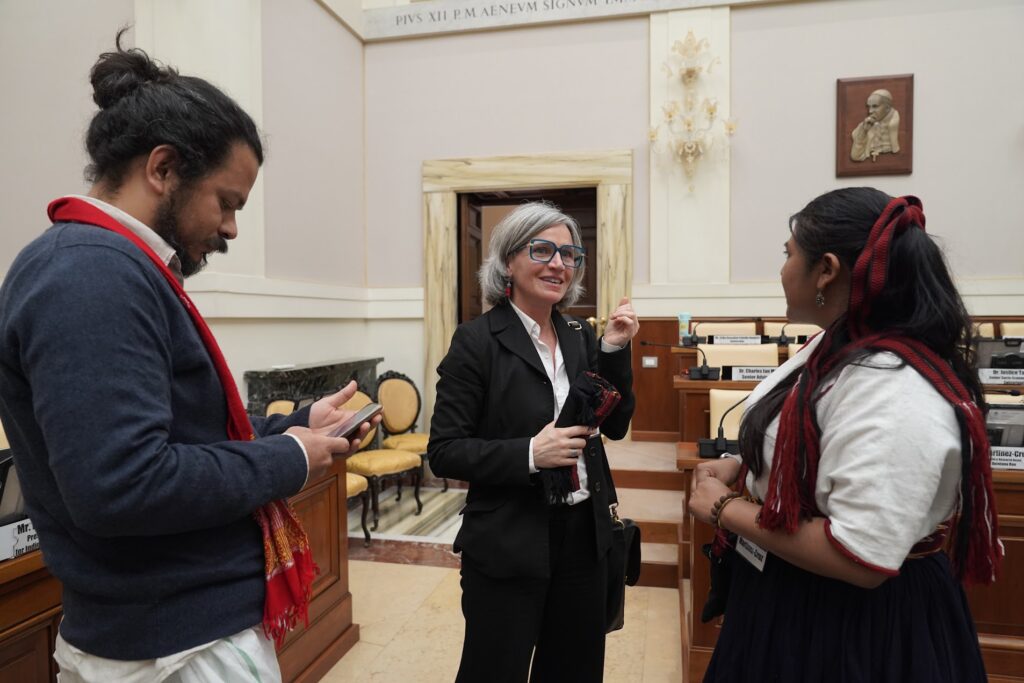
Indigenous science and its epistemologies are often questioned and disregarded as primitive and invalid. Indigenous Peoples have always been the object of scientific-social sciences research but not the co-creators of knowledge. Many scientists rely on Indigenous Peoples to guide their work by helping them to find wildlife, navigate rugged terrains, or understand weather trends (Sidik, 2022) but these relationships feel colonial, extractive, and unequal. Researchers drop into our communities with similar intentions as a mining company. They gather data and leave – never contacting the individuals of the communities involved in the research and excluding them from the publication process (Sidik, 2022). Similarly, Indigenous-led research also faces well-documented institutional barriers that limit full participation and visibility of Indigenous worldviews (Artelle, 2024).
Although the value of breading Indigenous science with Western science has been recognized to provide solutions for the mutual thriving of lands and cultures, we have only begun to scratch the surface of its benefits (Popp, 2018). Hence, this conference on Indigenous Peoples’ Knowledge and Sciences –combining traditional knowledge and science on innovations for resilience to address climate change, biodiversity loss, food security, and health is a step towards epistemic justice and an acknowledgment that we need other ways of knowing to illuminate a different way forward when we are faced with wicked challenges of a rapidly changing environment. The efforts from the Pontifical Academy of Sciences and Social Sciences in partnership with Indigenous Peoples will hopefully take a concrete step to replace the present-day monoculture of Western scientific thinking that attempts to homogenize valid knowledge with an ecology of knowledge.
Read the presentation here
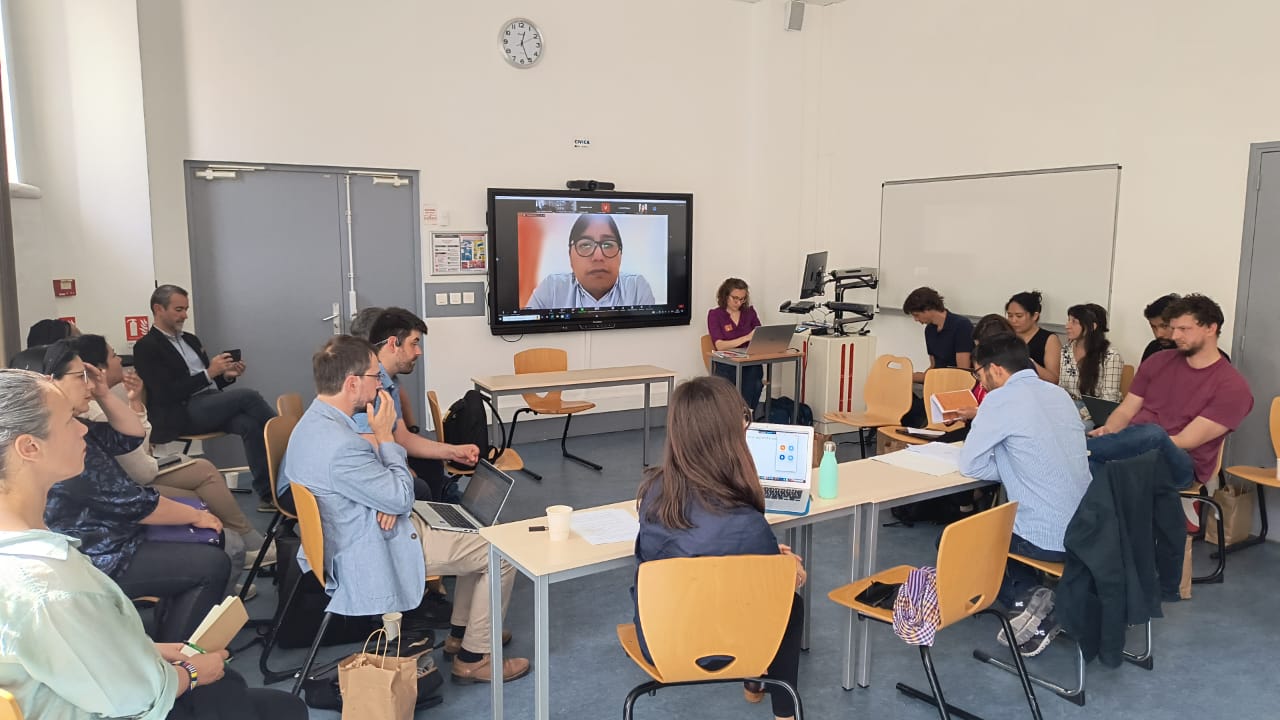
XI Edition of the Multidisciplinary Meeting on Indigenous Peoples (4-7 June 2024) at Sciences Po in Paris
Sign a Petition Pour une Commission Vérité sur les homes indiens de Guyane
https://www.change.org/p/pour-une-commission-v%C3%A9rit%C3%A9-sur-les-homes-indiens-de-guyane
![]()
Lancée par IFJD – INSTITUT LOUIS JOINET
Les homes indiens de Guyane, huit au total, étaient des pensionnats créés et dirigés par l’Église catholique et soutenus par l’État. Les enfants issus des communautés autochtones, dont le nombre est estimé à environ 2000, y furent placés pour être scolarisés. Leur plus forte activité s’étend de la fin des années 1940 au début des années 1980, le dernier home n’ayant fermé ses portes qu’en 2023. Aujourd’hui encore, la question de la scolarisation des enfants amérindiens n’a pas trouvé de réponses satisfaisantes.
Promoting socioeconomic development of Indigenous Peoples of Russian Federation
Nov 2-3, 2023, Moscow
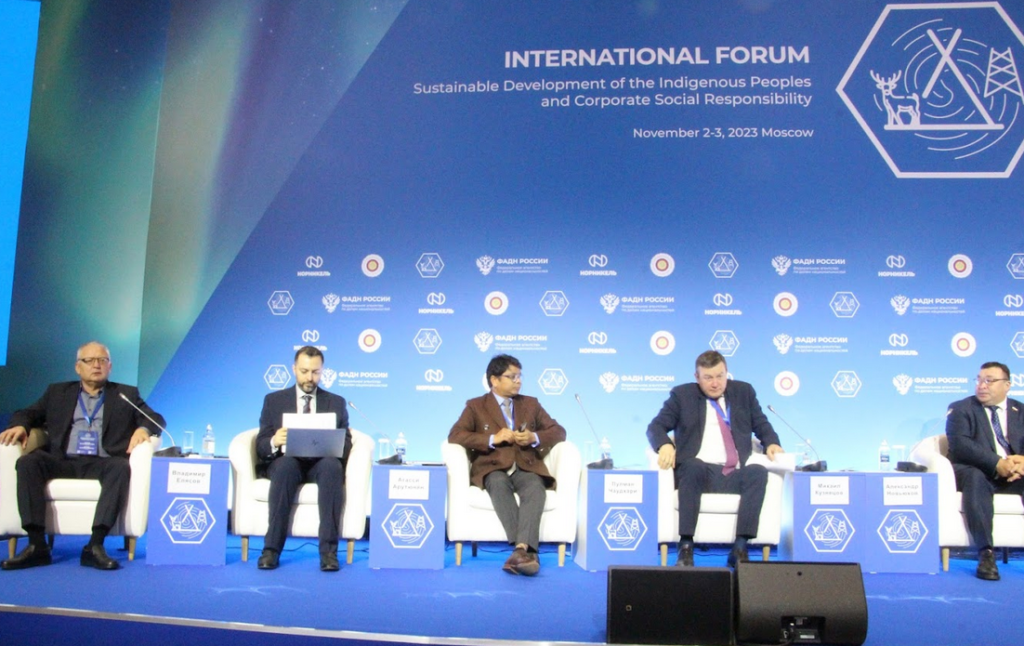
Mr. Phoolman Chaudhary (Asian Indigenous International Network, Global Home for Indigenous Peoples) spoke at the International Forum: Public-Private Partnership for Sustainable Development of Indigenous Peoples that was jointly organized by Federal Agency for Ethnic Affaires of Russia, Russian Association of Indigenous Peoples of the North in partnership with the UN Global Compact Russia Network including the Indigenous Peoples of Russian Federation.
Mr. Phoolman spoke on November 3, 2023 during the panel session “Promoting socioeconomic development of Indigenous Peoples: Practices and Potential”
Good morning and Jay Gurbaba all of you. Distinguished panelist, Distinguished delegates, ladies and gentlemen.

I am delighted to be here among you all and be part of a discussion that is very important for Russian Federation, its private sectors, and its Indigenous Peoples. I sincerely would like to thank the organizers, Federal Agency for Ethnic Affaires and the Russian association of Indigenous Peoples of the North in partnership with the UN Global Compact Russia Network including the Indigenous Peoples of Russian Federation for inviting me here in beautiful city Moscow.
With Indigenous peoples worldviews, way of life, traditional knowledge, and their reciprocal relationship with their traditional territories, Indigenous Peoples of Russian add a beautiful layer of diversity to the Russian Federation. As a member of Indigenous Tharu Peoples from Nepal, I see them as the guardians and stewards of their traditional territories. They are the gems of Russia.
Hence, I invite all of you to protect and promote the diversity that Indigenous Peoples of the North, Siberia and the Far East carry. I see diversity as a strength and I encourage all you in this room to see diversity as the national pride and strength. It makes me very happy that this International Forum sees Indigenous Peoples as strength and I hope that we will keep such spirit alive in the future as well.
I come from the southern part of Nepal that has sub-tropical forests and my village is very close to the forest. My forest that my ancestors dwelled speaks to me. It teaches me that everyone has a place like the forest has. It has space for small plants, shrubs, climbers, tall trees, and thousands of flora and fauna. A healthy forest is one that nurtures and fosters diversity. As humans, we can also celebrate diversity. The promotion of socio-economic development for Indigenous Peoples are important, however Indigenous Peoples must be involved in all aspects of the discussions making process as partners, as equals, as collaborators when it is about their livelihoods and their future.
Indigenous peoples have the right to determine and develop priorities and strategies for exercising their right to development.
What kind development Indigenous Peoples want in their territories, is a question we must ask the Indigenous Peoples. The Indigenous Peoples of Russian Federation can be a solid partner of Russian Federation’s economic prosperity if we can strengthen and promote meaningful, respectful, and reciprocal engagement with them. This forum is a great initiative towards that goal.
I hope that the infrastructure projects and mineral extraction and economic development projects in Indigenous Peoples territories do not displace Indigenous Peoples, pollute their water sources (rivers, and lakes), and erode their sustainable lifestyle and traditional knowledge. For Indigenous Peoples of the North, Siberia and Far East, their reindeer, the fisheries, water are their wealth and their livelihood. We need to work on a development model that protects their livelihood and their way of life as well. If their reindeer routes are damaged, their well-being can be endangered as reindeer are an important part of their food systems. Such priorities must be considered when developing the project plans.
Additionally, we are in 2023 and Indigenous Peoples rights have become a matter of international concern and numerous member states have committed to improve the situation of Indigenous Peoples living in their county by adopting the United Nations Declaration on the Rights of Indigenous Peoples (UNDRIP) and creating national laws that recognizes their rights to self-determination, customary rights to their traditional territories, and right to access their traditional territories and natural resources.
The member states who have not signed the Declaration should consider ratifying it to enhance the well-being of Indigenous Peoples living in their country for an inclusive development so that no one is left behind. As we have gathered here today, we all have the responsibility and moral obligation to:
- promote and protect the rights Indigenous Peoples for their self-determination,
- include Indigenous Peoples and their organizations in all decisions making process that affects their livelihoods and their future,
- ensure that states and business entities (local, national, and international) should obtain their free prior and informed consent prior to the approval of any projects affecting their land or territories, and other resources, particularly in connection with the development, utilization or exploration of minerals, and water or other resources.
- ensure that both the public and private sector are making a good use of the UN Guiding Principles on Business and Human Rights..
- Similarly, we need to think about:
- the human rights due diligence process to identify, prevent,
mitigate and account for how we address the impacts corporate
investments on human rights; - processes to enable the remediation of any adverse human rights
impacts they cause or to which they contribute. - We need to gauge human rights risks, business enterprises
should identify and assess any actual or potential adverse human
rights impacts with which they may be involved either through
their own activities or as a result of their business relationships. - Remediation where business enterprises identify that they have
caused or contributed to adverse impacts, they should provide for
or cooperate in their remediation through legitimate processes. - The state’ duty to protect against business-related human rights
abuse, States must take appropriate steps to ensure, through
judicial, administrative, legislative or other appropriate means,
that when such abuses occur within their territory and/or
jurisdiction those affected have access to effective remedy
Therefore, public-private partnerships can be a valuable approach to promote the sustainable development of indigenous peoples. So, applying these ways by identifying the specific needs and challenges faced by indigenous peoples could include access to education, healthcare, infrastructure, land rights, and economic opportunities.
I would say, to consider scaling up the partnership model to benefit more Indigenous peoples across the World. Remember that each indigenous peoples is unique, and the approach should be tailored to their specific needs and cultural context. It’s crucial to respect their self-determination and engage in a meaningful, collaborative manner that respects their rights and traditions.
Furthermore, making progress in implementing the 2030 Agenda for Sustainable Development Goals and the Paris Agreement on climate change also requires renewed efforts in addressing the rights of indigenous. Hence, we cannot continue to ignore the rights and aspirations of the Indigenous peoples. It is time we listen and do the right thing.
At the same time Russian Federation is one of the biggest Country in the World and it can be a leader when it comes to protecting and promoting the rights of Indigenous Peoples.
Finally, I thank all for your kind patience and look forward to your close cooperation on a common agenda on indigenous peoples rights at all levels.
Thank you!
